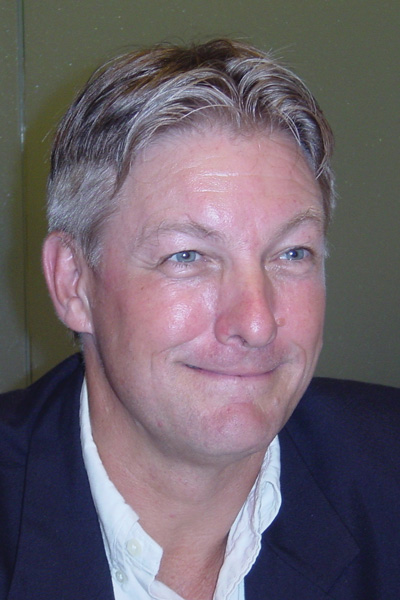Some advisers have no reservations in seeking referrals from their existing clients, but for others, this strategy does not sit comfortably.
Click through to read what Chris has to say about this challenge, where he holds some very definite views…
Prospecting for Gold

What constitutes gold in your business? Would it by any chance be quality clients? If so, are you prospecting for gold in the most efficient manner? To find out, read on…
When I first started in the business as a life insurance broker in London in 1978, cold calling was still a common way to prospect for clients, especially when you were still cutting your teeth in the business. I extended approximately 1500 cold invitations to a first appointment in my first nine months in the business (in addition to other forms of prospecting), and the end result was 12 cold clients! I didn’t have to be a genius to work out that this was not the most efficient form of prospecting!
So, if cold calling is the least efficient method of prospecting, what is the most efficient method of prospecting?
If you asked anyone building a business in any field what their preferred source of potential new client would be, I don’t know of anyone who would say anything other than a recommendation from a happy client – otherwise known in our business as a referral. Indeed, apart from friends, relatives and social contacts, I myself built two client bases numbering approximately 400 and 150 clients on opposite sides of the world almost exclusively off the back of referrals i.e. recommendations of happy clients.
So it never ceases to amaze me how much time and effort (and often wasted time and effort) advisers I speak to spend trying to prospect in what they perceive as potential gold mines in other people’s backyards where the entrance to the gold mine is usually pretty small and rocky with no tools for access when all the time they are sitting on by far and away the biggest potential gold mine of all in their own back yard where the entrance is huge, the turf is soft and there is a shovel ready to go!!
Why is it that so many advisers in our business are so reluctant to ask individuals who have already experienced firsthand the benefit of being a client for referrals and yet they have no problem asking people who are at arms’ length and who are typically not clients themselves for leads? And please remember, a recommendation from a happy client is a referral – anything else is a lead with varying degrees of warmth!
I suspect that, apart from some irrational fear of getting a client offside by asking for referrals i.e. fear of rejection, one of the most common reasons is that advisers don’t have a process for making referrals a natural consequence of business. This simply requires putting some building blocks in place during the initial advice process, so that referrals become an expectation at the point of sale.
Prepositioning Referrals

The large majority of advisers would substantially improve the number of referrals they get from new clients if they simply disciplined themselves to ask every new client for referrals at the conclusion of initial business. However, I believe we can improve our results in this area even more by putting just a couple of building blocks in place during the initial advice process.
In this fortnight’s Chrisism I want to share with you a very simple step that I inserted into my initial client engagement process a long time ago, and which I believe was a major reason why 56% of the new clients I took on after coming to Australia gave me referrals. That may not sound like a particularly high percentage figure, but I can assure you the majority of advisers I speak to would give their right arm to get referrals from more than half of their new clients!
I also believe that this first building block for making referrals a natural consequence of business can and should be inserted at a very early stage in the process, namely at the end of the “Introduction” stage of the first client meeting i.e. before the completion of the Fact Find.
Once you have completed the crucial steps of positioning protection (off the back of the FSG) and establishing and getting agreement on the purpose of the meeting you are about to have, I believe the next crucial thing to do is to get your client’s ‘buy-in’ to the concepts of long term business relationship and regularity and continuity of service (see Chrisism#20). Then it is off the back of the latter that we have the perfect springboard for getting a commitment to the principle of referrals even at this very early stage in the process.
I will now share with you what I would say in this context, but I stress that you should phrase it in your own way, understanding the message you are imparting but doing it in the language that you would use, not the language I would use.
So, having got the client’s ‘buy-in’ to the concept of regularity and continuity of service, I would go on to say:-
“So as a direct result of that, the more clients I take on the more time I have to spend looking after those clients and providing them with a high-quality service, and therefore the less time I have left to expand my client base, which I haven’t quite finished doing yet – hence my meeting with you today, right?
So, I do tend to rely pretty much exclusively on my existing clients to recommend people to me who they think would appreciate the same quality of service, on the assumption of course that you yourself are only going to become a client if you believe there is a quality service to be had, agreed?
Great! So, assuming that you also recognise that you are not unique in being able to benefit from that service and that other people you know could also benefit, would there then under those circumstances be any reason why you wouldn’t be happy to recommend other people to me?”
When asked in this way and in this context, I have found it most unusual for clients to resist agreeing to the concept of giving referrals even at this early stage in the process, thereby sowing the seeds for referrals becoming the natural consequence of business.

Chris Unwin is a financial adviser of 37 years standing and has been a specialist risk adviser for the last 22 years. His training and consulting business has operated for 12 years and it specialises in helping advisers across the full spectrum of experience with their client engagement skills, both in the risk advice specific space as well as in the more generic soft skills space.
…And if anyone would like to receive Chris Unwin’s Chrisisms on a fortnightly basis, just email him with your details, including the state in which you reside.
Contact or follow the author: Telephone: +61 417 281 034 | Website | Email | LinkedIn








